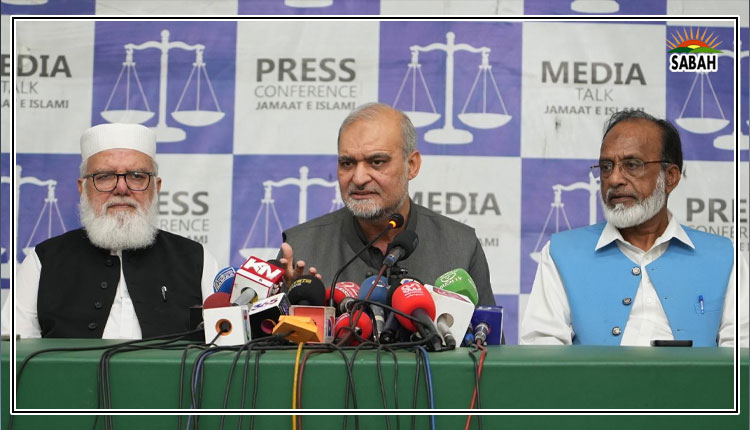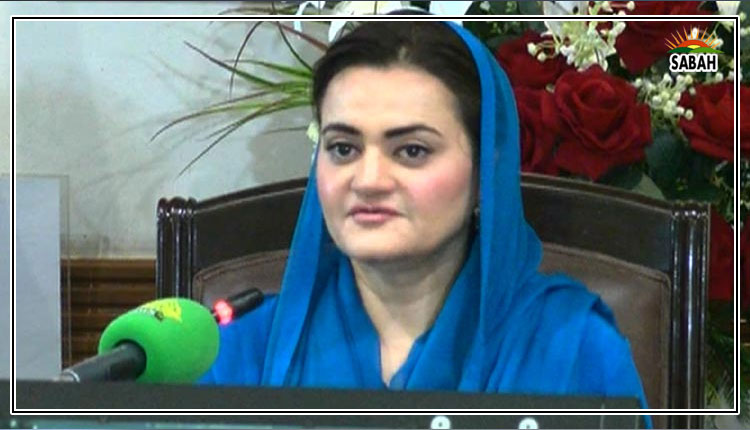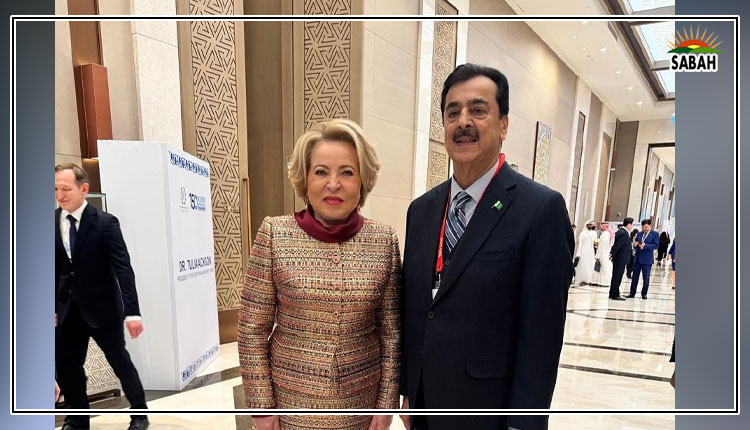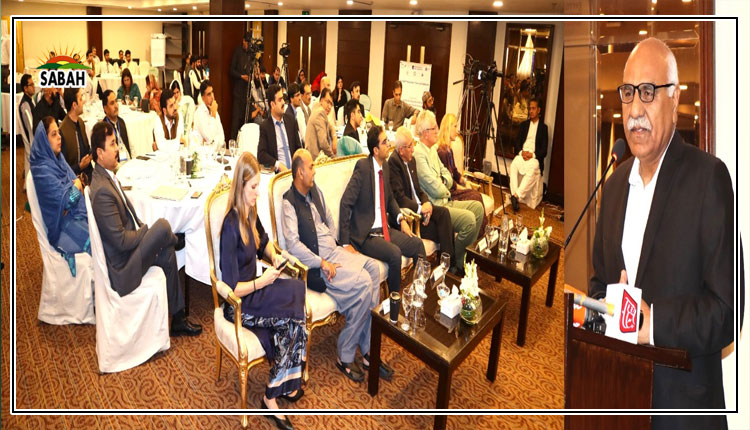Dr. Amjad Saqib advocates for shared responsibility in building a welfare state through social protection
ISLAMABAD, Oct 13 (SABAH): Chairperson of the Benazir Income Support Programme (BISP), Dr. Muhammad Amjad Saqib, graced the occasion as the guest of honor in a training workshop titled “Social Protection Course Pakistan.” The remarkable initiative organized by German Cooperation, Oxford Policy Management, the Sustainable Development Policy Institute (SDPI), and the Deutsche Gesellschaft für Internationale Zusammenarbeit (GIZ), brought together thought leaders, policymakers, and change-makers to explore and discuss the crucial role of social protection in shaping a more equitable society.
While addressing the participants, Dr. Amjad Saqib’s underscored the significance of a welfare state, emphasizing that it is one in which the government makes life easier for its citizens. He emphasized that the provision of social protection to deprived individuals is not the sole responsibility of the government; it is a shared duty that extends to individuals and society as a whole. We, as a society, are not merely policy-makers but also implementers. To truly understand the struggles of marginalized people, we must engage with them closely, empathize with their issues, and recognize the paramount importance of social protection, he added.
Dr. Amjad Saqib passionately conveyed his mission to alter the perception of the Benazir Income Support Programme. He said that BISP provides additional financial support to its beneficiaries, empowering them to overcome life’s challenges. Dr. Amjad Saqib described this support as an expression of love and solidarity with those in need.
Moreover, Dr. Amjad Saqib highlighted that with limited resources, BISP is currently providing financial assistance to nearly 10 million deserving families through the Benazir Kafaalat Programme. Additionally, under the Benazir Nashonuma initiative, BISP is offering stipends to one million pregnant, lactating women, and infants to address the issue of stunting and malnutrition whereas, eight million students are benefiting from the Waseela-e-Taleem Programme.
In his closing remarks, Dr. Amjad Saqib issued a powerful call to action, reminding the course participants that they had been chosen by Allah to learn about social protection and its potential to help the less fortunate. He stressed that each individual has a moral obligation to contribute positively to society and that Allah has the right to question what each person has done to support the deprived.
At the end, Dr. Amjad Saqib also distributed certificates to the participants, acknowledging their dedication and commitment to learning about social protection and making a difference in the lives of others.












